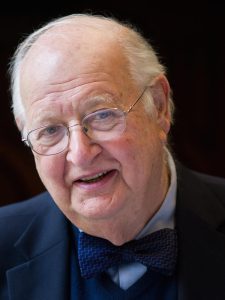

In-person capacity limited to 100. Refreshments will be provided. Hybrid option available.
Professor Deaton will discuss his recent work with Professor Anne Case on widening educational differences in mortality in America.
Read “Without a College Degree, Life in America Is Staggeringly Shorter” in The New York Times
Read “Accounting for the widening mortality gap between American adults with and without a BA” in The Brookings Institution
Angus Deaton is the author of almost two hundred papers in professional journals, and of six books, including The Great Escape: health, wealth, and the origins of inequality (2013), of Economics in America: an immigrant economist explores the land of inequality, (2023) and, with Anne Case, of Deaths of despair and the future of capitalism (2020), a New York Times best-seller.
His interests include health, happiness, development, poverty, inequality, and how best to collect and interpret evidence for policy. He is a member of the National Academy of Sciences of the USA, of the American Philosophical Society and, in Britain, a Fellow of the British Academy and an Honorary Fellow of the Royal Society of Edinburgh. He is a past President of the American Economic Association. He holds several honorary doctorates from universities in Europe and the US including Cambridge, Edinburgh, and St Andrews. In 2015, he received the Sveriges Riksbank Prize in Economic Sciences in Memory of Alfred Nobel “for his analysis of consumption, poverty, and welfare.” He was made a Knight Bachelor in 2016.